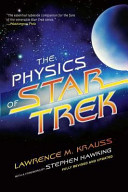The Flat Universe Problem
The next obvious feature of the universe in which we live is that it is old, very old. It took intelligent life about 3.5 billion years to develop on Earth. Hence, our existence requires a universe that accommodated our arrival by lasting billions of years. The current best estimate for the age of our universe is between about 10 billion and 20 billion years, which is plenty long enough. It turns out, however, that it is not so easy a priori to design a universe that expands, as our universe does, without either recollapsing very quickly in a reverse of the big banga big crunchor expanding so fast that there would have been no time for matter to clump together into stars and galaxies. The initial conditions of the universe, or some dynamical physical process early in its history, would have to be very finely tuned to get things just right.
This has become known as the “flatness” problem, and understanding it has become one of the central issues in cosmology today. Gravitational attraction due to the presence of matter tends to slow the expansion of the universe. As a result, two possibilities remain. Either there is enough matter in the universe to cause the expansion to halt and reverse (a “closed” universe), or there is not (an “open” universe). What is surprising about the present universe is that when we add up all the matter we estimate is out there, the amount we find is suspiciously close to the borderline between these two possibilitiesa “flat” universe, in which the observed expansion would slow but never quite stop in any finite amount of time.
What makes this particularly surprising is that as the universe evolves, if it is not exactly flat then it deviates more and more from being flat as time goes on. Since the universe is probably at least 10 billion years old today, and observations suggest that the universe is close to being flat today, then at much earlier times it must have been immeasurably close to being flat. It is hard to imagine how this could happen at random without some physical process enforcing it. Some 15 years ago, a candidate physical process was invented. Known as “inflation,” it is a ubiquitous process that can occur due to quantum mechanical effects in the early universe.
Notes:
Our Universe is remarkably well tuned, and appears to have laws in place to keep it that way.
Folksonomies: physics big bang flatness problem expansion
Taxonomies:
/science/phyiscs/atomic physics (0.461278)
/science/physics/space and astronomy (0.410863)
/science/physics (0.268973)
Keywords:
universe (0.930809 (negative:-0.051035)), physical process (0.826463 (negative:-0.756924)), current best estimate (0.692413 (positive:0.605932)), banga big crunchor (0.670497 (neutral:0.000000)), dynamical physical process (0.644514 (neutral:0.000000)), candidate physical process (0.622374 (neutral:0.000000)), obvious feature (0.549900 (neutral:0.000000)), intelligent life (0.537685 (positive:0.710565)), matter (0.513577 (positive:0.249693)), initial conditions (0.510467 (neutral:0.000000)), Gravitational attraction (0.507131 (negative:-0.255399)), central issues (0.506600 (positive:0.308984)), universe evolves (0.497547 (positive:0.469420)), observed expansion (0.496828 (negative:-0.239699)), mechanical effects (0.492663 (positive:0.451365)), earlier times (0.490888 (negative:-0.516073)), present universe (0.486272 (positive:0.557244)), early universe. (0.481681 (positive:0.451365)), ubiquitous process (0.480998 (positive:0.451365)), priori (0.355268 (positive:0.263011)), billions (0.354167 (neutral:0.000000)), flatness (0.353443 (negative:-0.508784)), Earth (0.349332 (positive:0.710565)), arrival (0.348174 (neutral:0.000000)), possibilities (0.345738 (neutral:0.000000)), existence (0.345276 (neutral:0.000000)), galaxies (0.344782 (neutral:0.000000)), age (0.344575 (positive:0.605932)), borderline (0.344346 (neutral:0.000000)), inflation (0.344228 (neutral:0.000000))
Entities:
3.5 billion years:Quantity (0.010000 (neutral:0.000000)), 10 billion years:Quantity (0.010000 (neutral:0.000000)), 20 billion years:Quantity (0.010000 (neutral:0.000000)), 15 years:Quantity (0.010000 (neutral:0.000000))
Concepts:
General relativity (0.957623): dbpedia | freebase | opencyc
Universe (0.955855): dbpedia | freebase
Physics (0.774946): dbpedia | freebase | opencyc
Time (0.764196): dbpedia | freebase | opencyc
Dark matter (0.745219): dbpedia | freebase
Gravitation (0.731247): website | dbpedia | freebase
Galaxy (0.694386): dbpedia | freebase | opencyc
Cosmology (0.603776): dbpedia | freebase | opencyc





